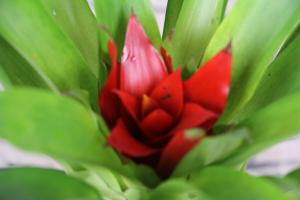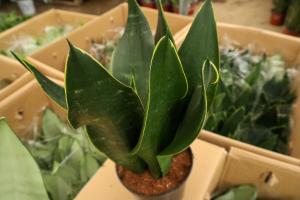Can You Plant an Olive Tree Near a House?
Many homeowners love the idea of planting olive trees in their yards or gardens. Olive trees are not only attractive and drought-resistant, but they also produce delicious fruit that can be used for cooking and eating. However, if you're considering planting an olive tree near your house, there are a few things to consider. In this article, we will explore whether you can plant an olive tree near a house, the benefits of doing so, and potential risks.
The Benefits of Planting Olive Trees Near a House
Planting an olive tree near your house can be immensely beneficial, both aesthetically and practically. Olive trees are versatile and can be easily pruned to fit your desired shape and size. Olive trees are also low maintenance and require minimal water, making them ideal for California's dry climate.
From an aesthetic perspective, olive trees are beautiful trees that can add an instant "wow" factor to any yard. As olive trees age, their trunks become twisted and gnarled, adding a unique and striking character to the tree. Olive trees also produce delicate and fragrant white flowers in spring and early summer, which can add a refreshing scent to your backyard.
From a practical perspective, olive trees can offer several benefits when planted near your house. Olive trees can protect your house from the wind and provide shade during the hot summer months. Additionally, planting an olive tree near your house can help lower your energy bills by providing natural cooling to your home.
Potential Risks of Planting Olive Trees Near a House
While there are many benefits to planting an olive tree near your house, there are also some potential risks to consider before planting. One of the biggest risks of planting an olive tree near your house is root invasion. While olive trees have relatively shallow roots, they can still cause damage to your home's foundation, pipes, and drainage systems. As a rule of thumb, it's best to plant olive trees at least 10 feet away from your home's foundation to avoid any potential damage.
Another potential risk of planting an olive tree near your house is the accumulation of fallen leaves, olives, and branches. While falling leaves and branches are a natural part of tree growth, they can pose a hazard when they accumulate on your roof or gutters. If left unattended, these debris can cause water damage and corrosion, leading to costly repairs. To avoid this, it's essential to regularly clear leaves and branches that have accumulated on your roof and gutters.
Conclusion
Planting an olive tree near your house can be an excellent way to enhance your yard's aesthetic and practical aspects. Olive trees are low maintenance, drought-resistant, and can offer natural cooling and wind protection. However, it's crucial to consider potential risks like root invasion and accumulated debris before planting an olive tree near your house. By weighing the pros and cons, you can make an informed decision about whether or not to plant an olive tree near your house.

 how many times do yo...
how many times do yo... how many planted tre...
how many planted tre... how many pine trees ...
how many pine trees ... how many pecan trees...
how many pecan trees... how many plants comp...
how many plants comp... how many plants can ...
how many plants can ... how many plants and ...
how many plants and ... how many pepper plan...
how many pepper plan...































